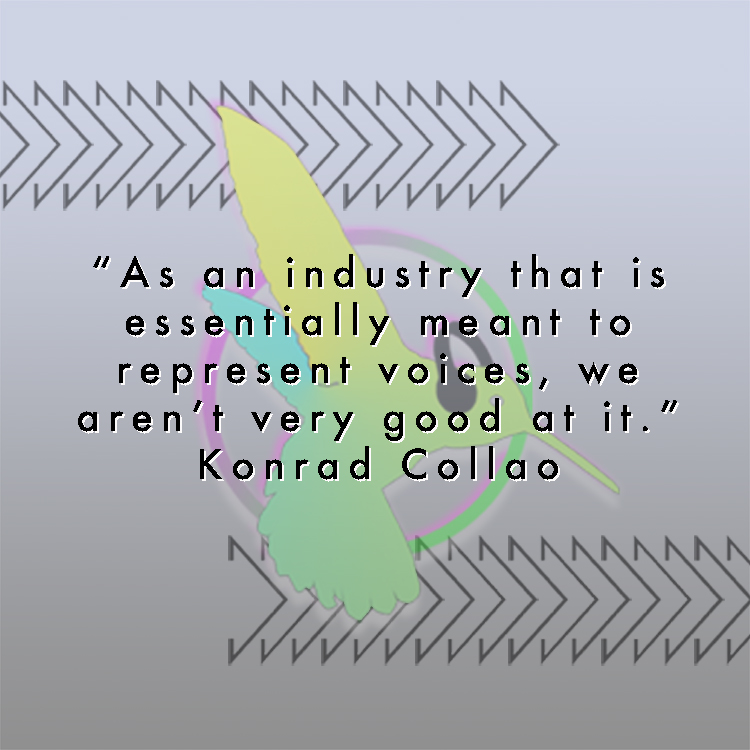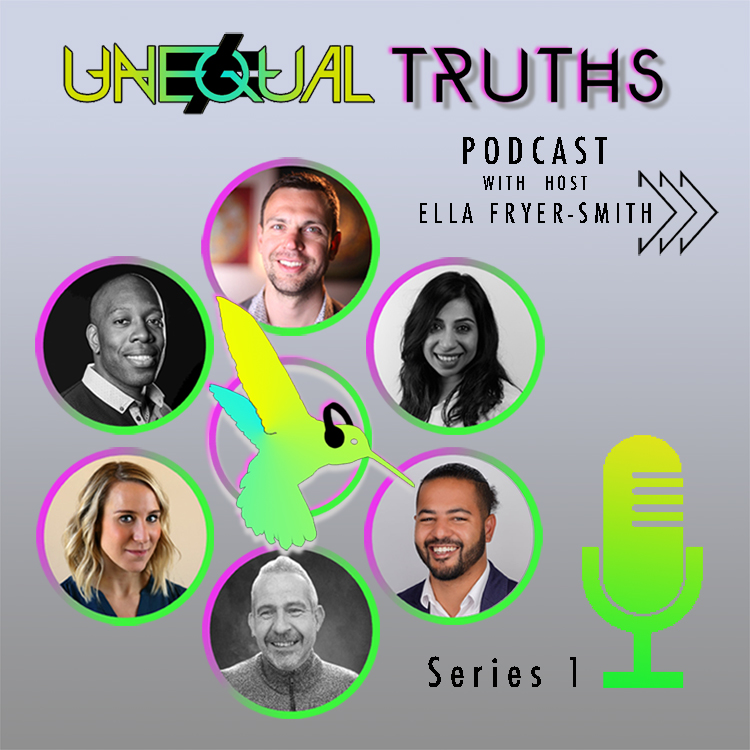Anomalies
I started my research career in 2007 and quickly came to the realisation that I was something of an anomaly as someone entering the industry from a low-income background. Over thirteen years on, we’re still not diverse enough as a profession, and that matters because from toilet roll to taxes, our work impacts everybody. But how can we hope to reflect the diverse reality of everyday life, when we ourselves do not reflect the diversity of society? Ultimately, the more diverse we are, the better our work will be.
Ski Season?
As a fresh graduate, I knew I loved speaking to people, and was passionate about wanting to make the world a fairer place through research. However, I thought academia was the only option for this, but I wasn’t convinced that was the right placefor me. So, I spoke to the careers advisor at Brunel University and that’s when I first heard about the world of Market Research. I applied to the Ipsos MORI graduate scheme, but was not accepted. Feeling deflated, I carried on working my part-time job until one day the phone rang… it was Ipsos, with a temporary assistant role to offer. A couple of weeks later, I went in for my first day at my first proper job. What struck me initially was just how quiet the office was. My line manager, who sat opposite me, would routinely email, rather than just talking across the desk. After a couple of weeks of this I decided to stand up and look over his computer to answer questions in person; it was a small gesture, but my first overt act of minor rebellion, of actively taking a stand in my workplace - figuratively and literally!
After seemingly making an impression, I was later invited to re-apply for the graduate scheme internally, and was this time successful. I did, however, encounter various cultural clashes:
- I hadn’t taken a gap year to travel like many of my peers, instead worked as a waitress to buy clothes and go out partying;
- I hadn’t gone to a Russell group university, rather one with a large working-class intake where I felt much more at home;
- ‘Ski Season’ was an alien concept to me and;
- as a colleague once kindly pointed out to me in front of a crowd of people at a summer work party, I sounded different, too.
Beyond those initial differences, I often felt disillusioned by some of the rhetoric I had to navigate in the workplace, such as the shorthand of ‘estates’, meaning dangerous places that house people very different to ‘us’. At times I’ve seen certain (and often incorrect) assumptions leak into fieldwork and analysis too - and had I not been present as part of project teams in these instances, it’s likely these would have remained unchecked. Those moments serve as a stark reminder for the need of representation across the board. If it was happening here, it was happening elsewhere.
I Wasn’t Alone
 Diversity and Inclusion is something I’ve spoken about publicly for a number years now, notably at conferences such as the Market Research Society and the Association for Qualitative Research. I’d had countless conversations with other research professionals who confided they could relate, so I reached out to some of those people to see if they’d be interested in taking part in the podcast, which instantly uncovered a series of themes.
Diversity and Inclusion is something I’ve spoken about publicly for a number years now, notably at conferences such as the Market Research Society and the Association for Qualitative Research. I’d had countless conversations with other research professionals who confided they could relate, so I reached out to some of those people to see if they’d be interested in taking part in the podcast, which instantly uncovered a series of themes.
“As an industry that is essentially meant to represent voices, we aren’t very good at it” - Konrad Collao (EP.1), Founder, Craft
In episode one, Konrad echoed a wholly unanimous feeling amongst guests, which speaks to the heart of why I wanted to start this podcast. In order to do the best work possible, we need more diverse and inclusive research teams. This includes diversity of thinking and political viewpoints, as highlighted by Steven Lacey in episode five:
‘I think the industry is very representative of that quite Metropolitan, liberal way of thinking, which isn’t necessarily the same heartbeat as the rest of the country, even in values’ - Steven Lacey (EP.5), Founder, The Outsiders
Diverse Edge
Guests discussed their points of difference as being a source of competitive edge for clients. By challenging assumptions that would otherwise go ignored, many felt they had helped clients avoid making major mistakes or missing out on big opportunities, described in detail in Episode two by Katie Gross.
‘I grew up in one demographic, I was able to move into a different demographic and see people from all walks of life. And that’s really led me to be a good market researcher.’ Katie Gross (Ep.2), Chief Customer Officer, Suzy
A recurring theme throughout every interview was the drive and hunger each guest embodied. All were extremely successful in their respective fields and attributed much of this to the extra energy they had to extend when approaching their work, whether overcoming adverse circumstances to succeed or making up for a lack of degree, or simply standing out as different in other people’s eyes.
‘That person whose had a lot harder life is probably going to work a lot harder because they’ve got that hunger in them. So perhaps companies should start really looking at how they can try and use that hunger in those people to their benefit’ - Theo Francis, (Ep.3), Founder and Director, GuineaPig Fieldwork
The Price of Fitting In
Some guests discussed initially finding the research world difficult to navigate, particularly when it came to communication - chiefly in speaking, writing and presenting.
‘Communication differences didn’t help my confidence levels at all. And because of that, it meant promotion came much later than it should have’ - Rajdeep Chana, (EP.4), Business Development Manager, Lucid LLC
 For some, this led to questioning their own voice and capabilities, resulting in opportunities being missed. For others, it meant changing how they presented themselves in a multitude of ways.
For some, this led to questioning their own voice and capabilities, resulting in opportunities being missed. For others, it meant changing how they presented themselves in a multitude of ways.
‘I was in South London, I spoke in a certain way, I quickly realised that I had to change that if I wanted to succeed…I had to take the bass out of my voice to appear less threatening. I had to have certain mannerisms to appear less threatening and be more accepted. And I feel it’s sort of hard to admit that. But those are the facts.’ - Graham Idehen, (EP.6), Director Project Success, Lucid LLC
These changes all take energy and commitment, and can come at some personal cost for individuals. While most guests are now confident in being their true selves at work, it has taken a long time to feel comfortable doing so, and can still be an area where ‘imposter syndrome’ can rear its head.
We’re not alone
A range of people have reached out to me for further conversations, the most satisfying of which, being fellow researchers who express relief that others are finally talking about what it’s like to enter this profession from a low-income background. They no longer feel alone.
I’m currently taking a short break before considering how best to frame series two of Unequal Truths. If the issues raised in this article resonate with your experiences or you’d simply like to know more, then please do get in touch. Finally, if anyone reading has ideas of possible avenues for the podcast moving forward, please reach out too.
Author Bio: Ella Fryer-Smith, Qualitative Research Consultant. Ella started her research career in the Public Affairs division of Ipsos MORI working on qualitative projects for a range of central and local government clients, as well as organisations such as the BBC and the NHS. Ella specialised in film ethnography at Ipsos until becoming an independent consultant in 2015. Since then she has worked with a broad selection of clients ranging from The Policy Lab and Citizens Advice, to Ogilvy London and Nike.